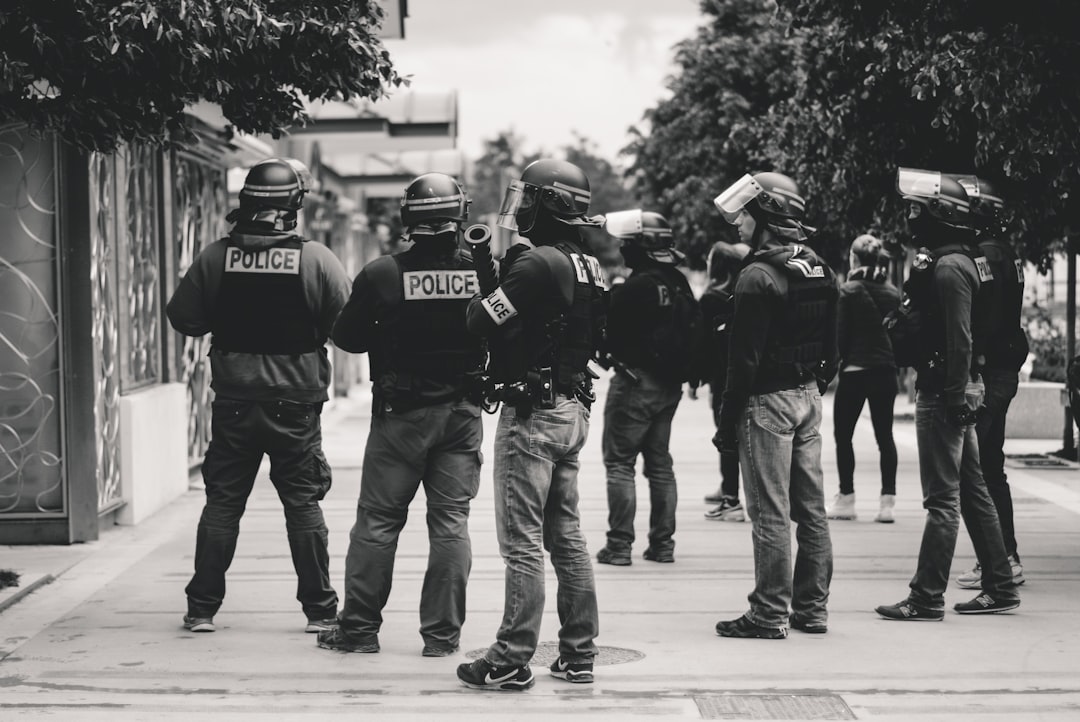A parole officer is in charge of supervising offenders who are released from prison on parole. Their job is to make sure that the offender complies with the conditions of their release, such as attending counselling sessions or staying away from drugs.
On the other hand, a probation officer monitors offenders who have been convicted but not incarcerated in order to enforce court orders or sentences.
They watch over these people by making sure that they adhere to curfews or don’t break any other laws; if they do then they report to a judge, who decides their punishment.
Table of Contents
PAROLE vs. PROBATION: What's The Difference
Probation and parole may be confused with each other because they both involve some level of supervision after sentencing.
However, the judge’s initial sentence—whether it is probation or not—is a far more reliable indicator than later parole status in identifying how much freedom an individual will have as they either await their sentence or carry it out.
Parole is granted by the parole board, not the judge who handed down the initial sentencing decision.
Parole comes much later than probation and may be in lieu of jail time or in combination with some jail time.
The length of time served can vary greatly from case to case; sometimes there are no minimums or maximums.
General vs. Limited Probation
The type of probation imposed by the judge, in most cases, depends on either the defendant’s overall criminal history and/or his past record of committing similar crimes close together in time. It can also depend on various other factors including the person’s age and physical health, their previous record of committing serious crimes, the circumstances surrounding the current offense, and even their willingness to comply with court orders.
The judge will consider all of these factors as a part of sentencing. If he decides that probation is appropriate for the sentence then he may order “general” or “limited” probation instead of sending the defendant to jail.
The judge will specify either term in the sentence when he hands down a sentence; limited probation is usually more restrictive than general probation, but both types of probation have their own unique set of rules and restrictions.
Parole Explained
Parole is a condition that can become available if you serve part of your sentence in jail.
When a prisoner is given the opportunity to get out of jail or prison early, they must comply with certain requirements in order to maintain their freedom. Parolees are released on mandatory supervision and are supervised by parole officers until the offender’s sentence has been completed. Probationers make up for lost time with increased law-abiding behavior and decreasing criminal involvement
There are also cases that have rulings for parole, meaning an individual can serve part of a prison sentence out in the community. The offender is allowed to be outside jail but they are under supervision and will need to adhere to a list of strict conditions designed to reduce the chances of repeat offenses during the probation.
Parole officers supervise offenders released on parole to make sure they comply with the conditions of release, which typically include general terms such as obeying all laws and refraining from alcohol or drugs.
A parole officer monitors offenders after their release on parole, and while technically the two positions take different approaches to each person, in practice they have several responsibilities in common. One such responsibility includes checking up with each individual to ensure they are complying with conditions of their release. There is more at stake if these individuals cannot adhere to certain conditions because they will be sent back to prison and could remain there for several months.
Parole officers also have the responsibility of passing on messages from courts or other authorities to individuals who need to be informed about certain rulings.
Probation Officer Explained
Probation is a strategy that may be employed by the court system, either as an alternative for criminal punishment or in lieu of jail time. Individuals can end up with one of two types: going to jail and then being put on probation after completing some of the sentence; or having to do probation instead of incarceration. Successfully finishing their probation time can help avoid any future trips to jail completely if they so choose!
A probationer has the freedom to stay in their community as long as they are monitored by a probation officer. However, not every offender qualifies for this type of sentence – some people go to prison without being offered the chance even though it is worth exploring if this option becomes an available sentencing outcome at their hearing.
If the court orders a person to be on probation instead of going to jail, then they can expect to attend sessions with their probation officer. The probation office is located within a larger law enforcement structure, often referred to as the Probation Department.
Unlike with probation, you do get to leave prison when sentenced to parole. However, this doesn’t mean that your sentence is served and you’re free to go – just the opposite! You will still have to comply with certain rules if you want to stay out of jail while on parole. Some examples include attending counseling sessions and not breaking any other laws.
A probation violation can come about after an offender has broken the terms of their agreement with the court. With any deviation, a probationer may face stiff penalties that could lead to their return to jail or prison.
Key Takeaways
Probation is a strategy that may be employed by the court system, either as an alternative for criminal punishment or in lieu of jail time. Individuals can end up with one of two types: going to jail and then being put on probation after completing some of the sentence; or having to do probation instead of incarceration. Successfully finishing their probation time can help avoid any future trips to jail completely if they so choose!
Frequently Asked Questions
How do you get on probation?
If you break the law and are sentenced to probation, then all you need is a crime history that is eligible for this type of sentence. You will still have to comply with certain requirements if given probation instead of jail time, but it won’t be much different than what parolees must do with regulations. Probation officer visit sessions may differ depending on where your attorney lives.
How do I get a career as a probation officer?
A: If you want to pursue a job in the field of corrections, then it’s important to at least start with some college courses as part of your pursuit. You can also earn an associate’s or bachelor’s level degree if you are seeking employment in law enforcement. Once you have done this, you will be required to put in some work hours with the department before they consider hiring you on for their staff.
What happens if you violate the terms of your probation?
A violation can happen when an offender has broken any term in their agreement with the court system. This could lead to anything from stiff penalties or returning to prison or jail time, so be sure not to let any opportunities slip away by violating the rules. Remember, the terms of your agreement are always subject to change and you should speak with your probation officer to get clarification if needed.
What is the difference between parole and probation?
Parole officers supervise people who are serving their sentence in the community whereas a probation officer monitors offenders released from incarceration with certain conditions or court orders.
Is it possible to serve my entire sentence under parole supervision?
No, typically those sentenced to prison must eventually be transferred back into jail after they have served 85 percent of their time. However if an individual has been diagnosed with terminal cancer or some other debilitating illness, then he/she can request an early release before being transferred back into jail.
How are parole and probation officers trained?
They both receive the same training before entering the profession. The only difference is that probation officers generally have a bachelor’s degree in social work or criminal justice whereas parole officers do not necessarily need any kind of formal college degree.
What type of salary does someone working as a parole officer typically make?
Parole officers usually average around $40k+ per year while their colleagues who become probation officers tend to be paid slightly more at an annual salary of $44k+ per year. Compensation varies according to one’s area but salaries for these positions will almost always include benefits such as health insurance and pension plans among others.
What does it mean to be on parole?
-it means that you are being supervised by a parole officer who is making sure that you are abiding by the terms of your release.
-if you are not compliant with these terms, then there can be consequences which could include arrest or going back to prison.
-to be on parole, you may have only served part of your sentence and are finishing the rest of it while supervised. This is called a “parole release.”
OR
-you may be serving your entire sentence in prison and going home on “parole” to complete the last bit of your time. This is often referred to as “time off for good behavior.”











